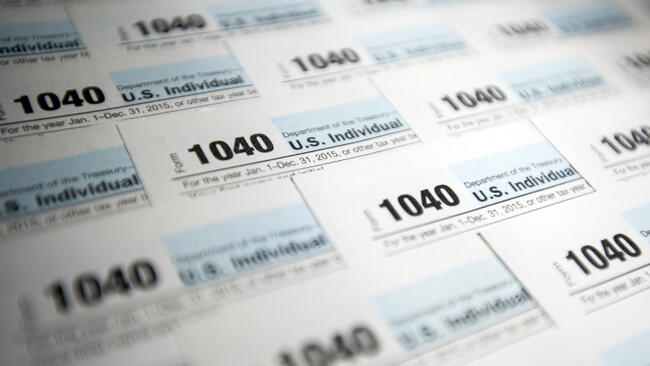What is the CARES Act?
What is the CARES Act?
What is the CARES Act?

Key takeaways
Key takeaways
In a legislative effort to provide support and protection to people financially impacted by the COVID-19 crisis, Congress passed the CARES Act in 2020. Aimed at assisting all those in need, from laid-off employees to small-business owners to retirement savers, the massive stimulus package includes a wide array of provisions to help put money back into your pocket.
In a legislative effort to provide support and protection to people financially impacted by the COVID-19 crisis, Congress passed the CARES Act in 2020. Aimed at assisting all those in need, from laid-off employees to small-business owners to retirement savers, the massive stimulus package includes a wide array of provisions to help put money back into your pocket.
How will the CARES Act impact you and your money?
For many Americans, this uncertain time has led to an uncertain future.
As you know, the pandemic changed the way we socialize, work and live every day.
But it also caused unprecedented financial hardships and hurdles for millions of individuals, families, households and businesses across the country as they attempt to push forward. In fact, even while the coronavirus remains highly contagious, Americans are more concerned about having to bear the economic burden of a potential recession than they are of actually getting sick.1
In a legislative effort to provide support and protection to the increasing amount of people who have been financially impacted by the COVID-19 crisis, Congress passed the Coronavirus Aid, Relief, and Economic Security Act — or the CARES Act for short. Aimed at assisting all those in need, from laid-off employees to small-business owners to retirement savers, the massive stimulus package includes a wide array of provisions to help put money back into your pocket.
Of course, the CARES Act is very extensive — so you may be wondering, “How does the CARES Act affect me and my retirement account?”
LET’S TAKE A LOOK TO CLEAR UP ANY CONFUSION:
Eligibility for COVID-19 assistance
COVID-19 has caused many different obstacles for Americans to overcome. From getting ill to losing a job to caring for family, you may be faced with several life-changing circumstances due to the virus.
If you need a helping hand, you may be able to look to your retirement plan as a last resort.
If your plan allows, you may be eligible for a distribution, new loan or loan payment break from your retirement plan if:
- You have been diagnosed with COVID-19 with a test that has been approved by the Centers for Disease Control and Prevention.
- Your spouse or dependent has tested positive for COVID-19.
- You have experienced financial hardships, such as being furloughed, quarantined or laid off — or you are facing reduced working hours or the inability to work due to lack of childcare.
- You have had to shut down or scale back your own business.
Taking a withdrawal without a penalty
Even though it’s encouraged to stay the course and keep saving for your future, everyone’s situation is unique.
Including yours.
Regardless of your age, you may be able to initiate a coronavirus-related distribution from your retirement account through December 30, 2020, without paying the IRS 10% early withdrawal penalty. You also have the choice to pay back your distribution within a three-year period.
Applying for a new “increased” loan
Under the CARES Act, the maximum amounts have increased for all new qualified loans taken on before September 22, 2020.
Delaying loan payments
If you have a new or existing loan, you may be able to postpone making your usual payments until 2021.
Please note: All of the above provisions are plan-specific. Check with your employer to see what is available through your plan.
Understanding the updated RMD rules
For the remainder of 2020, you no longer have to take a required minimum distribution from your retirement account.
Waiving new loan and withdrawal fees
To serve you and support your needs during this difficult time, Empower Retirement is not charging origination fees for any new plan loan or distribution administration fees on hardship withdrawals in response to the coronavirus outbreak.
Accessing information
Depending on how your income picture has been altered by the recent events, you may find yourself strapped for cash.
After all, common expenses like rent, utilities and groceries can add up fast.
But before taking money out of your retirement account or requesting a loan from your plan, it’s always a good idea to speak with a financial professional so you can stay on track.
As your savings situation evolves, you may have additional concerns in the days, weeks and months ahead. Please contact your employer, or check back with Empower, to learn more about your options.
Information in this document is current as of April 17, 2020, and is subject to change based on regulatory updates. Empower will communicate relevant changes to you and your retirement plan as appropriate.
1 “From Confidence to Concern: America’s Financial Outlook in the Face of a Pandemic,” Empower Institute, 2020.
The content contained in this blog post is intended for general informational purposes only and is not meant to constitute legal, tax, accounting or investment advice. You should consult a qualified legal or tax professional regarding your specific situation. No part of this blog, nor the links contained therein is a solicitation or offer to sell securities. Compensation for freelance contributions not to exceed $1,250. Third party data is obtained from sources believed to be reliable; however, Empower cannot guarantee the accuracy, timeliness, completeness or fitness of this data for any particular purpose. Third party links are provided solely as a convenience and do not imply an affiliation, endorsement or approval by Empower of the contents on such third party websites. Certain sections of this blog may contain forward-looking statements that are based on our reasonable expectations, estimates, projections and assumptions. Past performance is not a guarantee of future return, nor is it indicative of future performance. Investing involves risk. The value of your investment will fluctuate and you may lose money. Advisory services are provided for a fee by either Personal Capital Advisors Corporation ("PCAC") or Empower Advisory Group, LLC (“EAG”) depending on your specific investment advisory services agreement. Both PCAC and EAG are registered investment advisers with the Securities and Exchange Commission (“SEC”) and subsidiaries of Empower Annuity Insurance Company of America. Registration does not imply a certain level of skill or training. © 2023 Empower Annuity Insurance Company of America. All rights reserved. “EMPOWER” and all associated logos, and product names are trademarks of Empower Annuity Insurance Company of America.




